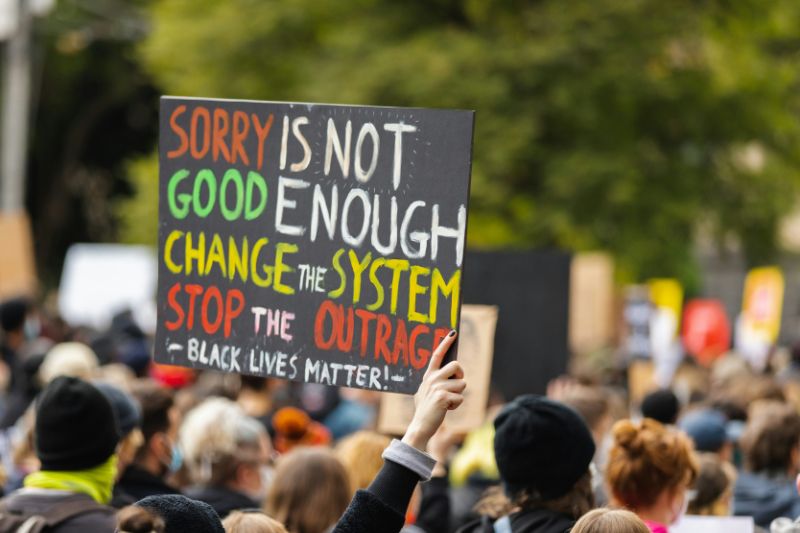Last year, many of us celebrated Sorry Day and National Reconciliation Week as signposts along a sunlit path to the Referendum on the Indigenous Voice to Parliament. This year, we may honour them as scorched huts surviving on a landscape devastated by fire after the loss of the Referendum. The reasons why people voted no, of course, are many and various, but many Indigenous Australians understandably experienced the loss as a personal rejection and a repudiation of Reconciliation. That is an outcome all of us Australians, First and Later, can feel sorry about.

In this climate, the observances of Reconciliation Week continue to mark their long history, but less as a celebration of progress than as a summons to struggle and to rebuild. The theme for National Reconciliation Week says it all. ‘Now More Than Ever, is a reminder to all of us that, no matter how many rejections, the fight for justice and the rights of Aboriginal and Torres Strait Islander people must continue’.
In such a bleak landscape, the events celebrated this week bear repeating. National Reconciliation Week recalls the Referendum held on May 27, 1967. It held that Indigenous Australians must be recognised as part of the population and that the Commonwealth Government could make laws for them. The irony is that the Commonwealth Government has used the Referendum to make punitive laws against them. The Week also recalls the 1992 Mabo High Court decision that recognised the existence of native title, the April 1997 Report ‘Bringing them Home’ that examined the forced separation of Indigenous Australian children from their families, and the 2008 Apology by the Prime Minister to Indigenous peoples for the removal of their children.
These events were moments of magnanimity, of largeness of spirit that set aside prejudice, narrow interests and grievances. In them, wrongs were recognised, the demands of justice affirmed, and apologies were made. They were hopeful in their affirmation of the common good. They offer encouragement to continue to fight for ‘what needs to be done now more than ever’. They also show, however, that the conversion needed in Australian society is not superficial, but must be deep and continuing.
The bad-tempered public conversation during the Referendum revealed the continuing existence of prejudice against Indigenous Australians and the refusal of many Australians to accept the effects of the dispossession of the First Peoples and the consequent need for reconciliation. Perhaps, however, it may also have reflected a broader sourness in public life, characterised by anxiety, pusillanimity and focus on individual interest. That is a common response to threat. At this time, the threat is posed by climate change and the desultory international response to it, alongside the many catastrophes of fire, flood and drought associated with it, the wars in Gaza and Ukraine land the breakdown of an international order, and the massive flight of people seeking a better life.
These global threats are matched by the local pressures manifested in inequality, homelessness, the rising cost of living, uncertain employment, and the growth of political movements fuelled by alienation and hostility. All these things lead to resentment at larger claims on our generosity, which distract us from our narrow interests. It is understandable that the Referendum on the Indigenous Voice to Parliament failed to gain support.
For that reason, Reconciliation Week is doubly important. It recalls us to the reality of our world and particularly to the lives of Indigenous Australians in it. The 2028 Closing the Gap agreement between Australian governments and Indigenous representatives acknowledged and deplored the gap in health, wealth, education, employment and in other matters between Indigenous and non-Indigenous Australians. It also set targets for change. A 2024 review showed that only in three areas, two of them local and legal, has there been any improvement in key areas. In others that directly impinged on human lives and formed the principal concern of many Indigenous Australians (such as the lessening of the number of children removed from their families, adults detained in the justice system, and the number of suicides), the numbers show deterioration. It seems certain, too, that the number of children detained under the justice system will increase after recent legislation in some states.
The defeat of the Referendum and the substantial failure to close the gap between the living conditions of Indigenous and other Australians mean that for many Aboriginal and Torres Strait Islanders, this Reconciliation Week and Sorry Day will be less days of celebration than of grief and of grim resolve to continue to seek justice. They invite other Australians to attend to the hard work involved in the unfinished task of Reconciliation.
Andrew Hamilton is consulting editor of Eureka Street, and writer at Jesuit Social Services.
Main image: (Mitchell Luo/Unsplash)